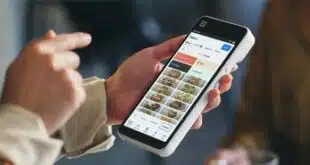A Boston-based startup on Tuesday announced a service that lets holders of E-ZPass transponders pay for such things as car washes, gasoline, and drive-through items from their cars. Under an agreement with the E-ZPass Group, Verdeva Inc.’s PayByCar service will start a pilot program that lets users create an account separate from the one they use to make toll payments. The account can be funded with credit or debit cards or with a digital wallet and linked to the user’s transponder.
The pilot will begin “shortly” and will involve three gas stations belonging to a chain in Massachusetts, according to a Verdeva spokesperson, who adds that the company will be announced “in about a month.” The locations will be equipped with radio-frequency ID readers to process PayByCar signals. “We’re in discussions with quick-serve restaurants and other outlets but cannot disclose at this point,” the spokesperson adds.

The E-ZPass Group works with tolling authorities in 17 states to allow some 35 million drivers to pay their highway tolls with windshield-mounted devices, according to information released by Verdeva. To use PayByCar, users opt in separately with the service and payments are handled directly by Verdeva, the company says. Tolling transponders work with a form of radio-frequency identification technology to link devices to receivers and transmit payment data. The PayByCar system sends a text message to the user’s mobile phone to confirm transactions.
Verdeva also announced it has brought on Anand Raman, a mobile-technology veteran and former Nokia executive, as president and chief operating officer. “The opportunity for PayByCar is tremendous,” Raman said in a statement, pointing to the size of the E-ZPass installed base.
This isn’t the first time entrepreneurs have tried to harness toll tags to simplify non-toll payments for drivers. In 2013, a technology integrator called IDriveThru.com tested a system based on E-ZPass transponders with five Wendy’s hamburger locations on New York City’s Staten Island. As with PayByCar, that system offered rewards for usage. In 2002, a handful of McDonald’s restaurants in Dallas began a similar trial.





